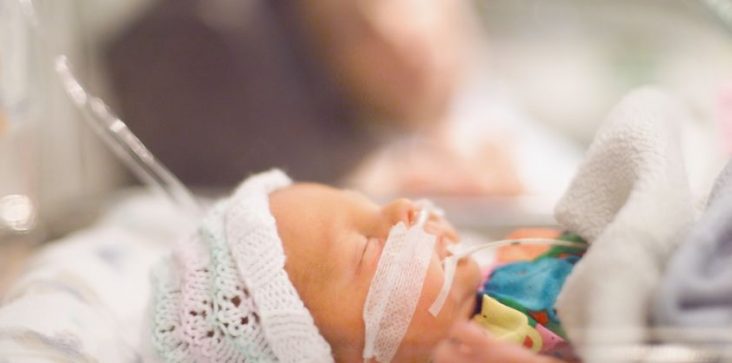UAMS receives $5 million to reduce infant mortality rates
by September 11, 2024 4:04 pm 260 views

The University of Arkansas for Medical Sciences (UAMS) has received a $5 million Congressional appropriation to coordinate efforts across the state to reduce infant mortality.
Dr. Nirvana Manning, professor and chair of the UAMS Department of Obstetrics and Gynecology, said the funding, administered by the Health Resources and Services Administration (HRSA), will allow UAMS to supply resources to every birthing hospital in the state and reach out directly to postpartum mothers to steer them to the appropriate help they may need.
The recently released funds were part of a legislative package championed by U.S. Sen John Boozman, R-Ark., and approved in late March.
“Healthy, thriving families are key to a successful Arkansas, and UAMS consistently dedicates significant resources to help achieve that objective across our state. I was proud to secure a federal investment to enhance its infant and maternal care, so moms and babies receive proactive outreach and adequate medical support. Dr. Manning and her colleagues are terrific partners whose commitment to solving this challenge will continue demonstrating the merit in allocating these funds,” Boozman said.
Manning said Boozman contacted UAMS last year in search of the best ways to improve the state’s infant mortality statistics.
According to a 2024 report from the U.S. Centers for Disease Control and Prevention (CDC), Arkansas had 272 infant deaths in 2022, equaling an infant mortality rate of 7.67 deaths out of every 1,000 live births. This placed Arkansas third on a list of states with the highest infant death rates.
Only Mississippi, with a death rate of 9.11, and South Dakota, with a death rate of 7.77, had higher infant mortality rates than Arkansas. The state with the lowest infant death rate — 3.32 per 1,000 live births — was Massachusetts.
“I said we’ve got to first look at the moms,” Manning said. “There are many moms that either due to health issues, lack of resources or stressors that are not in the best place to take care of their babies and families.”
Manning, director of the UAMS project, said she determined that the best way to get essential health care information directly into the hands of as many mothers and families is to equip every labor and delivery facility in the state with informational packets and resources for after delivery, as well as tangibles, such as infant sleep sacks, car seats or diapers.
UAMS will provide each birthing center with those resources to pass on to each newly postpartum mother or couple, whether the child is the first or a subsequent birth.
Sleep sacks are wearable blankets that help newborns stay warm and fall asleep, while keeping them on their backs. They eliminate the need for loose bedding in the crib that can pose a risk of suffocation or sudden infant death syndrome (SIDS).
The second part of the project will be what Manning calls “a reverse call center,” in which trained workers will reach out directly to postpartum parents to see how they’re doing and if they need any help.
“This way, we’re not placing the burden on the families to call us,” Manning said.
“We’re going to do this for everyone, regardless of their socioeconomic status or potential needs,” she said. “This is a touchpoint to check on a family and make sure they’re doing well. Some may need a home visit. Some may need a nurse for home care. Some may need help with lactation. If they don’t need anything, that’s fine. If they do, we can team them up with resources.”
She said the specific information to be included in the packet is in development, as are the best ways of locating and contacting all postpartum parents. She said one idea is to create custom silicone bracelets with QR codes that new mothers can scan to obtain links to helpful information, and that will also identify them as newly postpartum, an especially vulnerable time, should health care concerns arise.
Manning said new parents will also be directed to helpful postpartum information created by the American College of Obstetricians and Gynecologists, and the American Academy of Pediatrics.
Gov. Sarah Sanders has convened a working group of stakeholders in the maternal health field to create recommendations for implementation in the next legislative session. Three members of that group – Surgeon General Dr. Kay Chandler, Secretary of Health Renee Mallory, and DHS Medicaid Director Janet Mann – appeared on Talk Business & Politics this weekend to discuss their findings.
You can watch their full interview in the video below.
